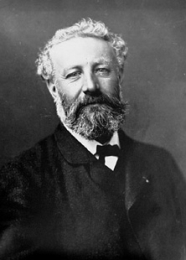There was a large audience assembled on the 14th of January, 1862, at the session of the Royal Geographical Society, No. 3 Waterloo Place, London. The president, Sir Francis M -, made an important communication to his colleagues, in an address that was frequently interrupted by applause. This rare specimen of eloquence terminated with the following sonorous phrases bubbling over with patriotism: "England has always marched at the head of nations" (for, the reader will observe, the nations always march at the head of each other), "by the intrepidity of her explorers in the line of geographical discovery." (General assent). "Dr. Samuel Ferguson, one of her most glorious sons, will not reflect discredit on his origin." ("No, indeed!" from all parts of the hall.)
Bitte wählen Sie Ihr Anliegen aus.
Rechnungen
Retourenschein anfordern
Bestellstatus
Storno









